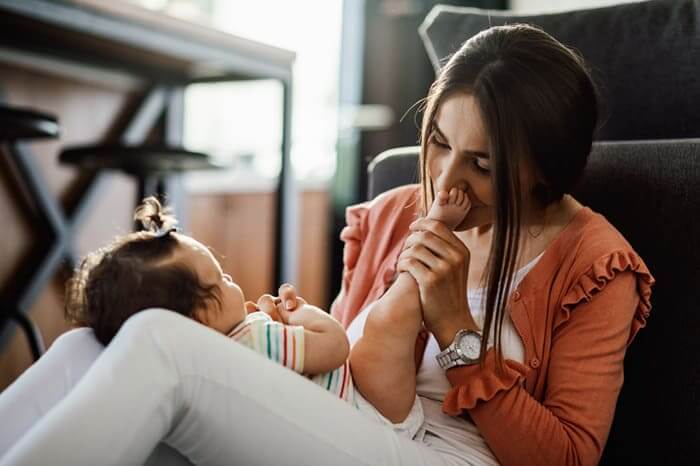For many parents, the decision to have a second baby is far from simple. The joy of welcoming a first child often brings an overwhelming sense of love, responsibility, and a shift in priorities. As your family grows, so too does the complexity of decision-making. Timing, personal readiness, family dynamics, financial stability, and emotional preparedness all play a part in determining when (or if) to expand your family further.
As a therapist, I often work with individuals and couples who are grappling with the decision to have a second child. This decision is layered, multifaceted, and, at times, riddled with uncertainty. It’s influenced by a variety of factors—some tangible, like finances and living space, and others more intangible, such as emotional readiness and the dynamics between partners and children.
The Pressure of Timing: Society’s Expectations vs. Personal Readiness
There is often an external pressure to have children within a specific timeframe. People may expect you to have a second child shortly after your first, or societal norms may suggest that certain milestones should be met before expanding your family. These expectations can create an underlying sense of urgency, but the truth is, the timing of having a second baby is highly personal and unique to every family.
In therapy, I see many parents who feel torn between societal expectations and their own internal desires. Some may feel that their biological clock is ticking, while others may worry about the emotional and physical toll another child could take on their family. What’s essential to remember is that there is no perfect “right time” to have a second child. It’s about assessing your readiness in a holistic way, considering not just logistics, but emotional, relational, and physical aspects of your life.
Key Considerations When Deciding to Have a Second Baby
- Emotional Readiness: Are You Prepared for Another Huge Change? Having a second child means welcoming another life into the family, which will inevitably change the dynamics. It’s important to reflect on how the first child has impacted your family life. Are you and your partner emotionally prepared for the changes that another child will bring? Some parents worry about how their first child will adjust, while others are concerned about their own emotional capacity to handle the challenges of a second baby.
The emotional aspect of this decision often revolves around self-reflection: Are you ready to give your attention and energy to a second child, and can you balance the needs of both your children, while also tending to your own needs and relationship with your partner?
Therapy can be helpful in working through these questions, providing space to explore your feelings about expanding your family and identifying any concerns or anxieties that may be influencing your decision. If there are emotional barriers, therapy can offer support in processing those emotions and finding clarity.
- Relationship Readiness: How Will Your Partnership Handle It? The dynamics between partners will also shift when a second baby is introduced. Whether or not you’re both on the same page about wanting a second child is key to a smooth transition. The stress of pregnancy, the birth, and the ongoing challenges of raising multiple children can put a strain on your relationship.
It’s important to have open and honest conversations with your partner about your individual desires, concerns, and expectations around the timing of a second child. Are you both ready for the logistical challenges—such as managing different schedules, responsibilities, and finances—that come with a larger family? Do you have a plan for maintaining intimacy and connection in your relationship after the arrival of a second baby?
Therapy can be a safe space to explore these conversations and to learn communication strategies that will help ensure that both partners feel heard and understood. Couples counseling can be especially helpful in fostering a deeper understanding of each other’s needs and creating a mutual vision for expanding the family.
- Financial and Logistical Considerations: Can Your Family Handle Another Baby? Financial readiness is another major consideration when deciding to have a second child. Can your family afford the additional costs, such as childcare, schooling, healthcare, and general living expenses? If you’re already stretched thin financially, it’s essential to consider how a second baby will impact your finances, and whether it will create undue stress on your family’s budget.
Additionally, practical matters such as living space, childcare, and support networks need to be considered. Do you have enough space in your home for a second child? Will you have access to family or childcare to help with the transition? These practical concerns, though not always emotionally charged, are important to assess before making a decision.
In therapy, these logistical questions can be approached with the goal of reducing financial stress and finding a balance between emotional readiness and practical necessity. A therapist can help guide you in discussing these concerns with your partner and coming to a decision that feels both emotionally and practically grounded.
- Sibling Dynamics: Will Your First Child Be Ready for a Sibling? For many parents, the decision to have a second child also involves thinking about how the first child will adjust to the new addition. Sibling rivalry, jealousy, and the fear of not being the center of attention are common concerns for parents when introducing a new baby into the family. Will your firstborn be ready for this transition?
While it’s impossible to predict exactly how a child will react to a new sibling, it’s important to prepare them emotionally for the change. Therapy can be useful in addressing concerns about sibling rivalry and exploring strategies to help your firstborn feel included in the process, rather than excluded. A therapist can also guide you in managing your own feelings about how your relationship with your first child may change and how you can maintain individual bonds with each child.
- Physical Health and Recovery: How Will Pregnancy and Birth Impact Your Body? Another consideration in timing the decision for a second child is the physical toll that pregnancy and childbirth will take on your body. After giving birth to a first child, some women may be concerned about how soon they can physically and mentally handle another pregnancy.
It’s important to listen to your body and recognize when you are fully healed and ready to endure another pregnancy. This includes considering factors such as recovery time, breastfeeding, sleep patterns, and your physical and mental well-being.
Therapy can help women and couples work through the challenges of recovery and body image issues that may arise after the first pregnancy. It’s common to feel conflicted about whether your body is ready to go through the process again, and therapy can help you process these concerns in a healthy and supportive way.
The Impact of Timing: Should You Wait?
Timing doesn’t just refer to the practical aspects of having a second child; it also relates to how your family, relationships, and personal goals align with the decision to expand. Should you wait until your first child is older, or is now the right time?
There’s no definitive answer to this question, as each family’s situation is unique. However, it’s important to approach the decision with awareness and consideration of all factors, not just the external pressure to have children within a specific time frame.
Taking the time to check in with yourself, your partner, and your support network will give you the clarity you need. Therapy can play a key role in supporting parents through this process, helping them explore feelings of uncertainty or anxiety, and providing tools to cope with stress during this life-changing decision.
There’s No Perfect Time, Only Your Time
The decision to have a second baby is deeply personal and involves many considerations—emotional, physical, relational, and financial. While the timing of this decision may feel critical, it’s essential to remember that there is no universally “perfect” time to have another child. What matters most is that the decision feels right for you and your family at this moment in time.
Therapy can provide invaluable support in navigating the emotional complexities and practical challenges of this decision. With guidance, couples can explore their readiness, communicate openly, and create a plan that aligns with their family’s needs. No matter where you are in your journey, it’s important to approach the decision to expand your family with awareness, compassion, and patience, knowing that there’s no rush, and no “right” way to do it. Connect with us today here

.png)


